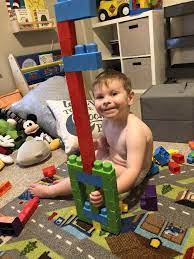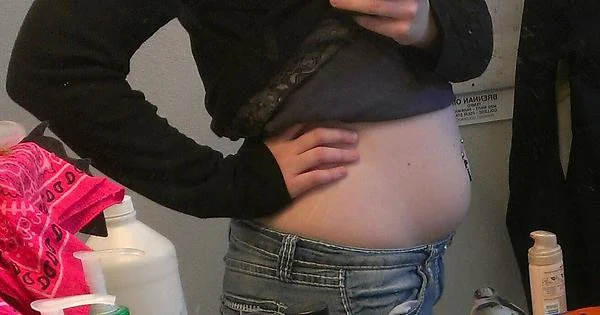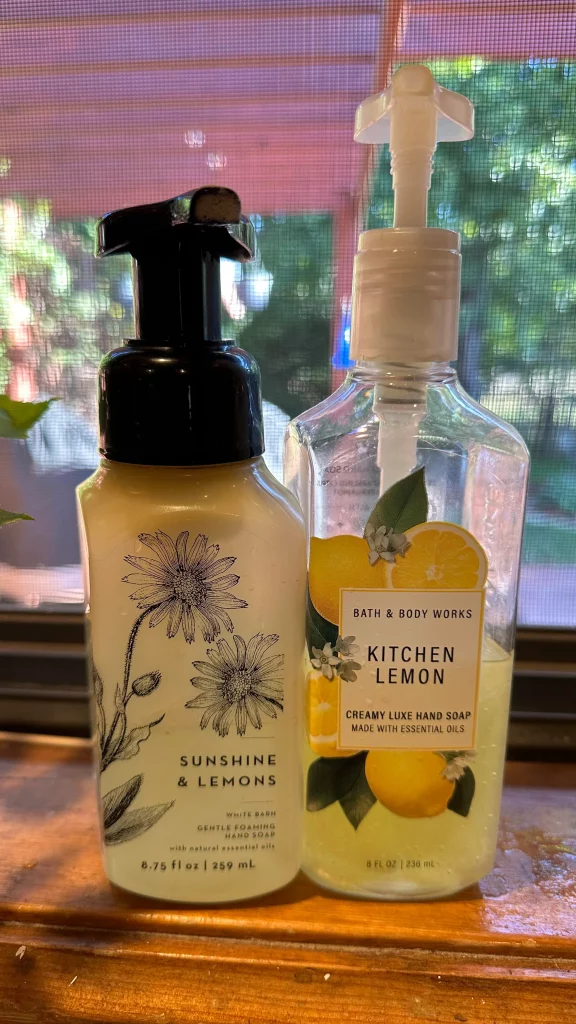Signs That You’re Going Blind
1. Double Vision
 Image source All About VisionDouble vision is a problem that should be addressed immediately, whether it has occurred frequently or randomly. The condition is defined by a person seeing two images next to each another or on top of one another. It can cause problems with balance, reading and every day routine stuff.
Image source All About VisionDouble vision is a problem that should be addressed immediately, whether it has occurred frequently or randomly. The condition is defined by a person seeing two images next to each another or on top of one another. It can cause problems with balance, reading and every day routine stuff.Advertisement
2. Scratchy Pain On The Eye Surface
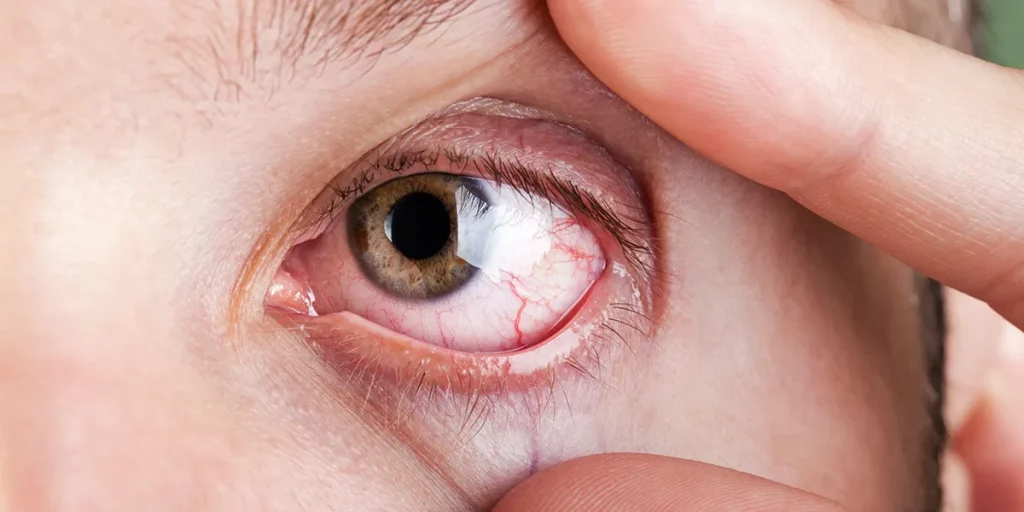 Image source Self.comA scratching pain on the surface of the eye can be caused by a foreign object such as a piece of sand or a small hair. It may also be a symptom of dry eyes where your eyes are not lubricated enough and your eyelids irritate the cornea every time you blink. However, if it persists, it could be a much more serious issue.
Image source Self.comA scratching pain on the surface of the eye can be caused by a foreign object such as a piece of sand or a small hair. It may also be a symptom of dry eyes where your eyes are not lubricated enough and your eyelids irritate the cornea every time you blink. However, if it persists, it could be a much more serious issue.Advertisement
3. Eye Pain
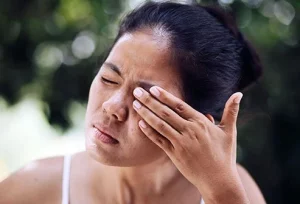 Image source eMedicineHealthEye pain is a general symptom which can be defined by throbbing, stabbing or shooting pains in the eye. It can occur due to a trauma or irritation such as something getting stuck in your eye. It might even be due to an infection. If you feel it frequently, it needs the attention of an eye doctor in case there is nerve damage.
Image source eMedicineHealthEye pain is a general symptom which can be defined by throbbing, stabbing or shooting pains in the eye. It can occur due to a trauma or irritation such as something getting stuck in your eye. It might even be due to an infection. If you feel it frequently, it needs the attention of an eye doctor in case there is nerve damage.Advertisement
4. Floaters Or Spots
 Image source News MedialEveryone sees spots or floaters at some stage, usually after looking at bright lights. However, for some people, it is more persistent and more extreme. Floaters are small objects that move around in your field of vision, commonly caused by age. As you get older and your eyes slowly deteriorate, it can become quite debilitating and could possibly be something that needs addressing.
Image source News MedialEveryone sees spots or floaters at some stage, usually after looking at bright lights. However, for some people, it is more persistent and more extreme. Floaters are small objects that move around in your field of vision, commonly caused by age. As you get older and your eyes slowly deteriorate, it can become quite debilitating and could possibly be something that needs addressing.Advertisement
5. Narrowed Field Of Vision
 Image source NvisionA narrowed field of vision is similar to impaired peripheral vision. This means that a person may only be able to see directly in front of them. It may start with impairment to peripheral vision and progress to tunnel vision which feels like you are looking through a hole. There may be a chance it is caused by something more significant and should not be ignored.
Image source NvisionA narrowed field of vision is similar to impaired peripheral vision. This means that a person may only be able to see directly in front of them. It may start with impairment to peripheral vision and progress to tunnel vision which feels like you are looking through a hole. There may be a chance it is caused by something more significant and should not be ignored.Advertisement
6. Impaired Peripheral Vision
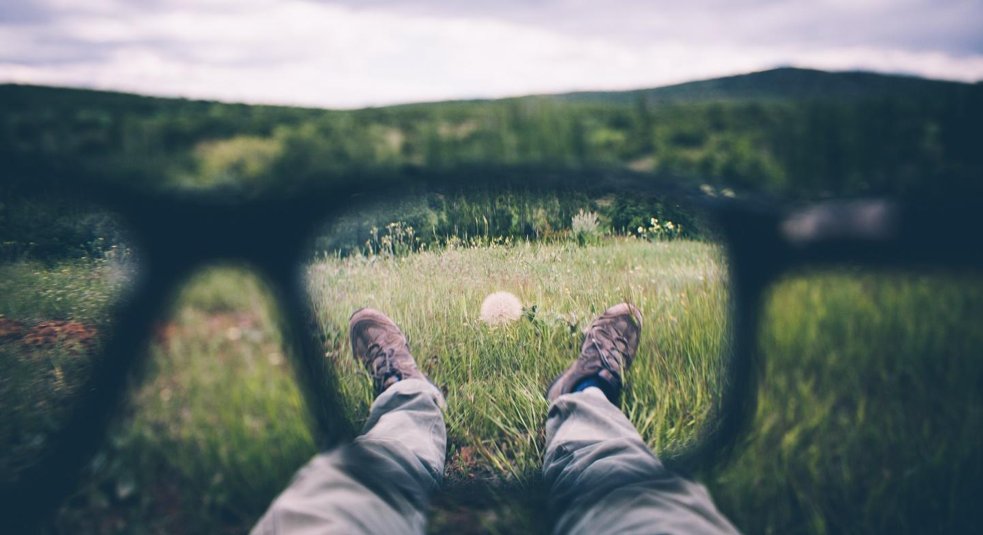 Image source The GuardianPeripheral vision is when you see from the corner of your eye or in spaces where you are not focusing. If you find yourself struggling to see things around you, whether on one side or on both, it could indicate that there is damage to the optic nerve and should be checked out by a health professional.
Image source The GuardianPeripheral vision is when you see from the corner of your eye or in spaces where you are not focusing. If you find yourself struggling to see things around you, whether on one side or on both, it could indicate that there is damage to the optic nerve and should be checked out by a health professional.Advertisement
7. Blind Spots
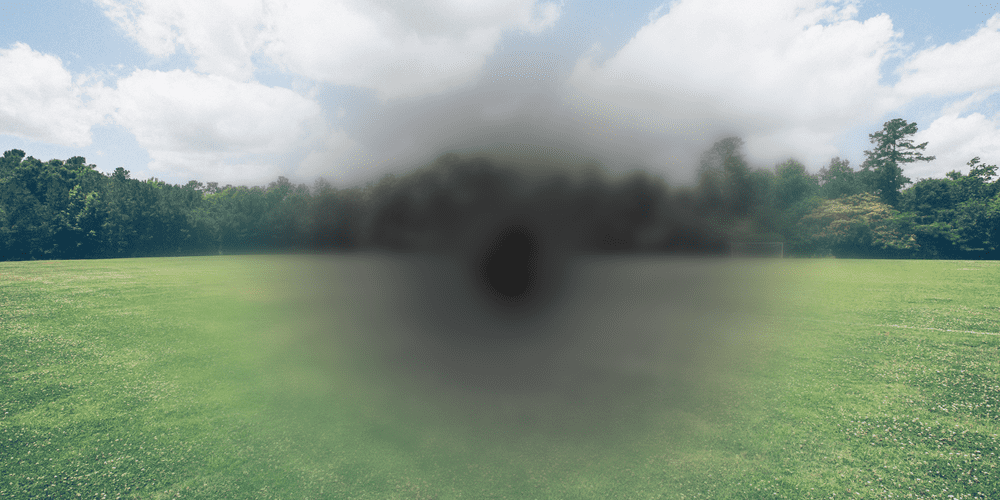 Image source EyeTxBlind spots, also known as scotoma, appear at any point in your vision. They could appear as a dark spot in the centre of your vision or around the edges. It may also feel like there is a flickering light in the middle of your eye. If you experience migraines as well then this could be a sign that a further diagnosis is required.
Image source EyeTxBlind spots, also known as scotoma, appear at any point in your vision. They could appear as a dark spot in the centre of your vision or around the edges. It may also feel like there is a flickering light in the middle of your eye. If you experience migraines as well then this could be a sign that a further diagnosis is required.Advertisement
8. Swelling In The Eye
 Image source HealthlineSwelling in the eye can show symptoms such as the ones already mentioned, although swelling around the eye can be caused by a myriad which your eye doctor can properly diagnose. Swelling could be because of fluid retention, allergies or serious eye infections that may cause permanent damage if not treated.
Image source HealthlineSwelling in the eye can show symptoms such as the ones already mentioned, although swelling around the eye can be caused by a myriad which your eye doctor can properly diagnose. Swelling could be because of fluid retention, allergies or serious eye infections that may cause permanent damage if not treated.Advertisement
9. Losing Vision
 Image source Daily MailWhen you’re suddenly losing vision, there can be many reasons such as AMD (age-related macular degeneration). When the blood vessels in the eyes leak blood or fluid under the retina, this could damage the nerves that enable you to see. If you are experiencing such a symptom, you should seek a professional opinion.
Image source Daily MailWhen you’re suddenly losing vision, there can be many reasons such as AMD (age-related macular degeneration). When the blood vessels in the eyes leak blood or fluid under the retina, this could damage the nerves that enable you to see. If you are experiencing such a symptom, you should seek a professional opinion.Advertisement
10. Eye Injury
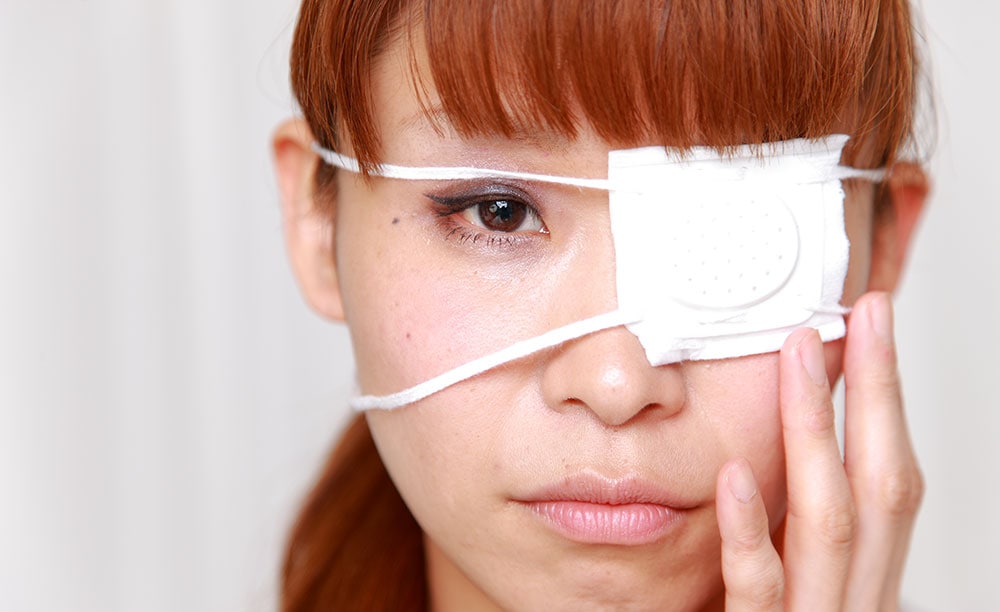 Image source Assil.com Eye injuries can lead to changes in vision as well as losing vision, depending on how severe the injury is. If pain persist for more than 20 minutes and it is accompanied by redness, your eyes should be checked out by a professional to rule out permanent damage.
Image source Assil.com Eye injuries can lead to changes in vision as well as losing vision, depending on how severe the injury is. If pain persist for more than 20 minutes and it is accompanied by redness, your eyes should be checked out by a professional to rule out permanent damage.Advertisement
11. Eye Discomfort When Wearing Contact Lenses
Advertisement
12. Constant Eye Discomfort
 Image source Medical News TodayWhen you are experiencing persistent discomfort in one or both of your eyes, this may simply be due to small particles that have got in there. If you can't remove them yourself, you should seek medical assistance so an expert can check you out. Foreign particles in your eyes could lead to vision changes and even more severe problems down the line.
Image source Medical News TodayWhen you are experiencing persistent discomfort in one or both of your eyes, this may simply be due to small particles that have got in there. If you can't remove them yourself, you should seek medical assistance so an expert can check you out. Foreign particles in your eyes could lead to vision changes and even more severe problems down the line.Advertisement
13. Red Eyes
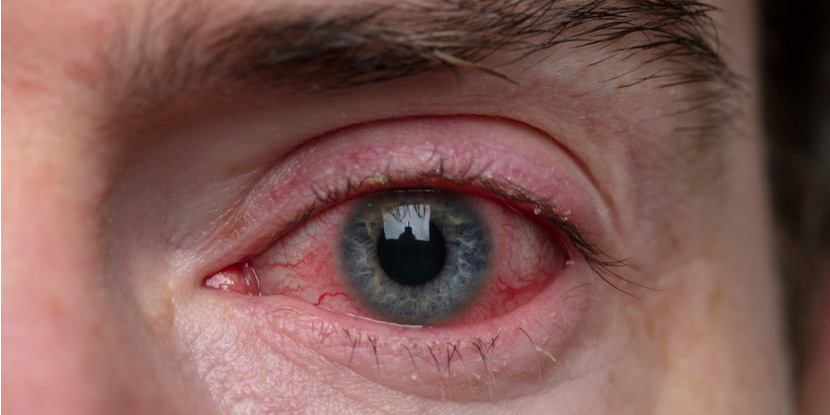 Image source American AcademyWhen it comes to having red eyes, experts will usually say that it’s preferable for both eyes to be affected rather than only one. When both of your eyes are red, chances are it's conjunctivitis, a minor infection which can easily be treated. If it's only one eye that's red, this could be scleritis which you shouldn't hesitate getting seen to.
Image source American AcademyWhen it comes to having red eyes, experts will usually say that it’s preferable for both eyes to be affected rather than only one. When both of your eyes are red, chances are it's conjunctivitis, a minor infection which can easily be treated. If it's only one eye that's red, this could be scleritis which you shouldn't hesitate getting seen to.Advertisement
14. Complications From Eye Surgery
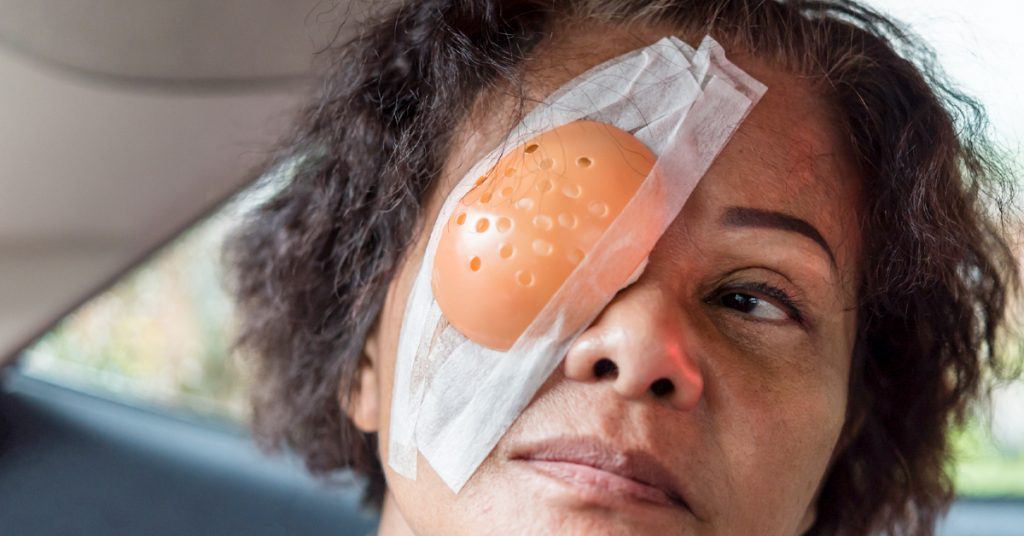 Image source Getty ImagesWhile complications following surgery are rare, they could happen. We are talking blurry vision, eye pain and redness after surgery and if you display these symptoms, you would do well to get assessed by a professional sooner rather than later. It's always better to rule things out than worry about possible sight loss.
Image source Getty ImagesWhile complications following surgery are rare, they could happen. We are talking blurry vision, eye pain and redness after surgery and if you display these symptoms, you would do well to get assessed by a professional sooner rather than later. It's always better to rule things out than worry about possible sight loss.Advertisement
15. Particles In The Eye
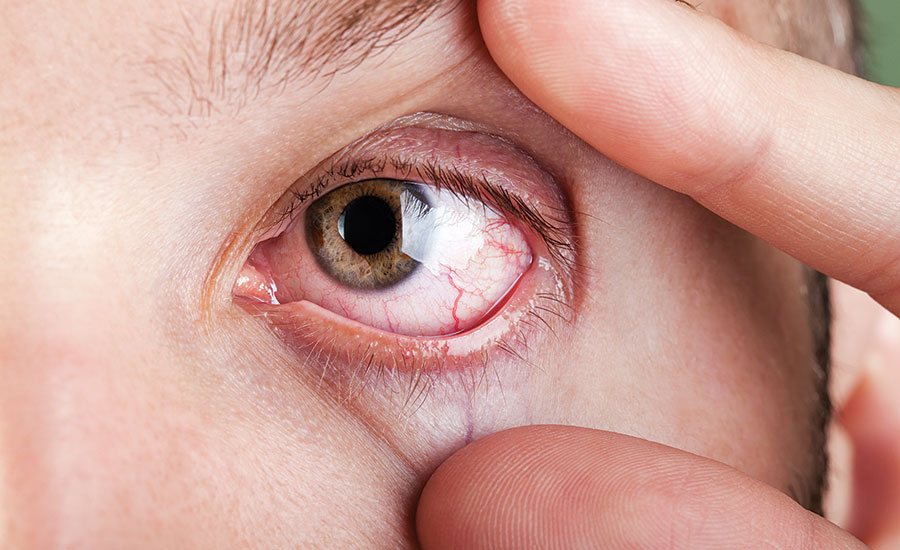 Image source ISHN.comIn the majority of cases, sand, dirt, dust or other small particles that get into your eye aren't any cause for alarm. Your eyes will very likely flush them out naturally with tears and blinking. If metal or glass flies into your eyes, that's a different matter and a medical professional will need to fish these out. If left, it could contribute towards vision problems.
Image source ISHN.comIn the majority of cases, sand, dirt, dust or other small particles that get into your eye aren't any cause for alarm. Your eyes will very likely flush them out naturally with tears and blinking. If metal or glass flies into your eyes, that's a different matter and a medical professional will need to fish these out. If left, it could contribute towards vision problems.Advertisement
16. Flashing Lights And Colours
 Image source Eye SpyRetinal migraine, also known as ocular migraine, is an eye condition that causes short attacks of blindness or visual problems such as flashing lights in one of your eyes. These episodes can be frightening but in the majority of cases they are harmless and short lived. Your eyesight should go back to normal afterwards.
Image source Eye SpyRetinal migraine, also known as ocular migraine, is an eye condition that causes short attacks of blindness or visual problems such as flashing lights in one of your eyes. These episodes can be frightening but in the majority of cases they are harmless and short lived. Your eyesight should go back to normal afterwards.Advertisement
17. Squinting
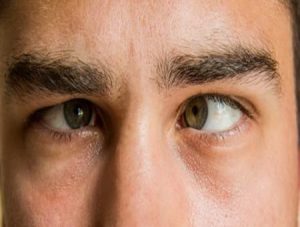 Image source Max HealthcareExcessive squinting of the eyes is often accompanied by tilting of the head or leaning in very closely. Individuals might squint when reading, writing or even recognising their family and friends. This could be a sign of your vision starting to be impaired and your eyes should be examined.
Image source Max HealthcareExcessive squinting of the eyes is often accompanied by tilting of the head or leaning in very closely. Individuals might squint when reading, writing or even recognising their family and friends. This could be a sign of your vision starting to be impaired and your eyes should be examined.Advertisement
18. Change In Movement
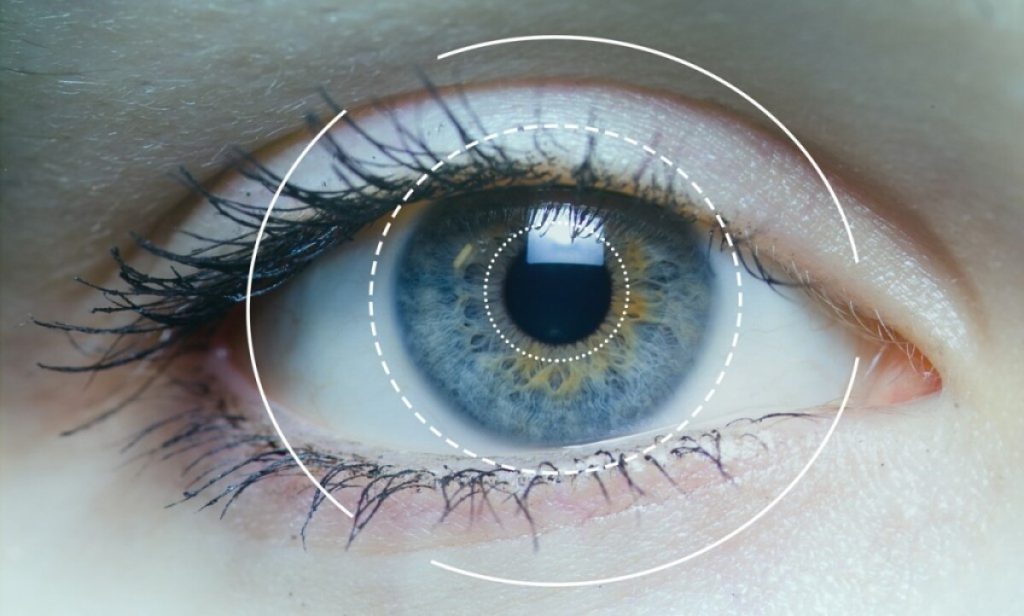 Image source TheNextWebThose who cannot see clearly may move more tentatively or become clumsy. Slowly walking up and down the stairs, stumbling over obvious obstacles and holding on to rails or someone's arm, are all indications that someone could be having trouble with their vision.
Image source TheNextWebThose who cannot see clearly may move more tentatively or become clumsy. Slowly walking up and down the stairs, stumbling over obvious obstacles and holding on to rails or someone's arm, are all indications that someone could be having trouble with their vision.Advertisement
19. Complications From Diabetes
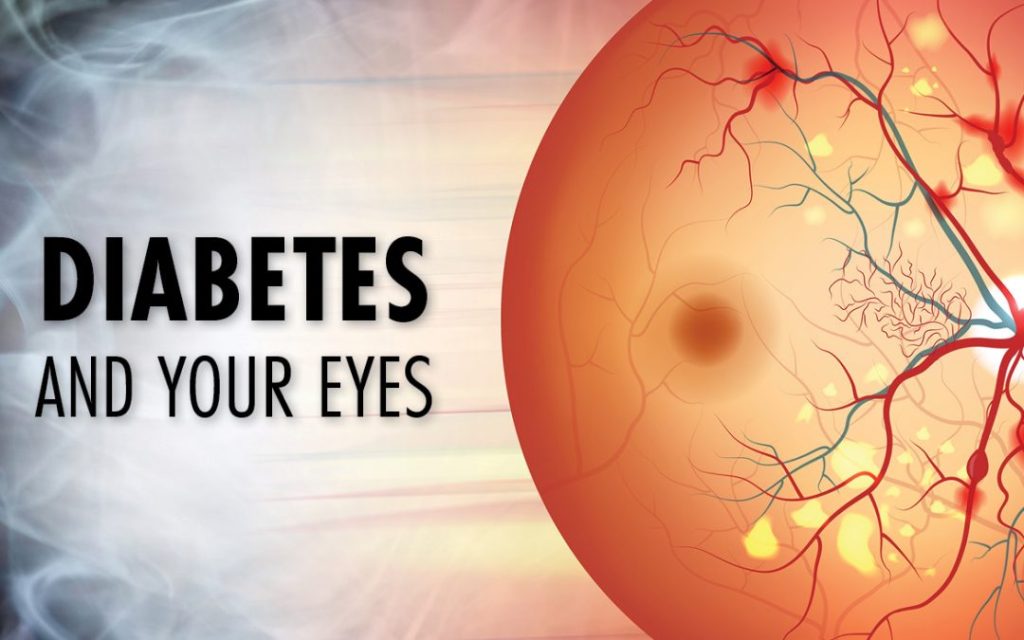 Image source VisionCareAn eye condition known as diabetic retinopathy occurs when high levels of glucose in the bloodstream start damaging and weakening blood vessels in the eye. Fluid may accumulate in the eye and change the shape of the retina, reducing the person's vision. Early stages of diabetic retinopathy don't normally produce symptoms so it can be more difficult to diagnose until the later stages. Symptoms will be present in both eyes and could lead to blindness.
Image source VisionCareAn eye condition known as diabetic retinopathy occurs when high levels of glucose in the bloodstream start damaging and weakening blood vessels in the eye. Fluid may accumulate in the eye and change the shape of the retina, reducing the person's vision. Early stages of diabetic retinopathy don't normally produce symptoms so it can be more difficult to diagnose until the later stages. Symptoms will be present in both eyes and could lead to blindness.Advertisement
20. Severe Glaucoma
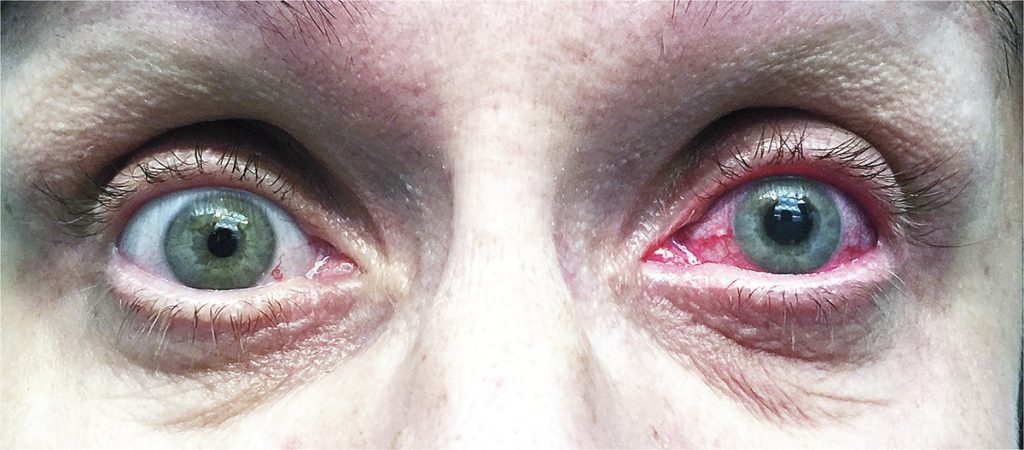 Image source Eye JournalGlaucoma refers to a category of eye disease where the optic nerve is damaged and it could cause vision loss and blindness over time. The most common form of glaucoma is open-angle glaucoma, though the medical profession recognizes that there are many different types of the disease.
Image source Eye JournalGlaucoma refers to a category of eye disease where the optic nerve is damaged and it could cause vision loss and blindness over time. The most common form of glaucoma is open-angle glaucoma, though the medical profession recognizes that there are many different types of the disease.Advertisement
21. Sudden Or Near-Total Vision Loss
 Image source Exeter EyeThis can happen if a clot creates a blockage in the retinal artery. An eye doctor may call it 'central retinal artery occlusion' or 'branch retinal artery occlusion.' It can also mean that you are at risk of a heart attack or stroke. This happens if you get a blood clot that clogs a blood vessel in the eye.
Image source Exeter EyeThis can happen if a clot creates a blockage in the retinal artery. An eye doctor may call it 'central retinal artery occlusion' or 'branch retinal artery occlusion.' It can also mean that you are at risk of a heart attack or stroke. This happens if you get a blood clot that clogs a blood vessel in the eye.Advertisement
22. Instant Blindnes
 Image source HealthlineSudden Blindness is when you find it difficult to see, without warning. It is not the same as complete blindness as it can vary from blurry vision to loss of vision. People think that sudden vision loss is the same as complete blindness. The duration of sudden blindness can be a few seconds up to a few hours and should be treated so it does not become permanent.
Image source HealthlineSudden Blindness is when you find it difficult to see, without warning. It is not the same as complete blindness as it can vary from blurry vision to loss of vision. People think that sudden vision loss is the same as complete blindness. The duration of sudden blindness can be a few seconds up to a few hours and should be treated so it does not become permanent.Advertisement
23. Smoking And Eye Sight
 Image source Stanford NewsSmoking is bad for your body and as bad for your eyes as well. If you are a regular smoker you could develop serious eye conditions that may cause vision loss or blindness. Two of the greatest threats to your eyesight are macular degeneration and cataracts. Cataracts cloud a normally clear lens of the eye.
Image source Stanford NewsSmoking is bad for your body and as bad for your eyes as well. If you are a regular smoker you could develop serious eye conditions that may cause vision loss or blindness. Two of the greatest threats to your eyesight are macular degeneration and cataracts. Cataracts cloud a normally clear lens of the eye.Advertisement
24. Legally Blind
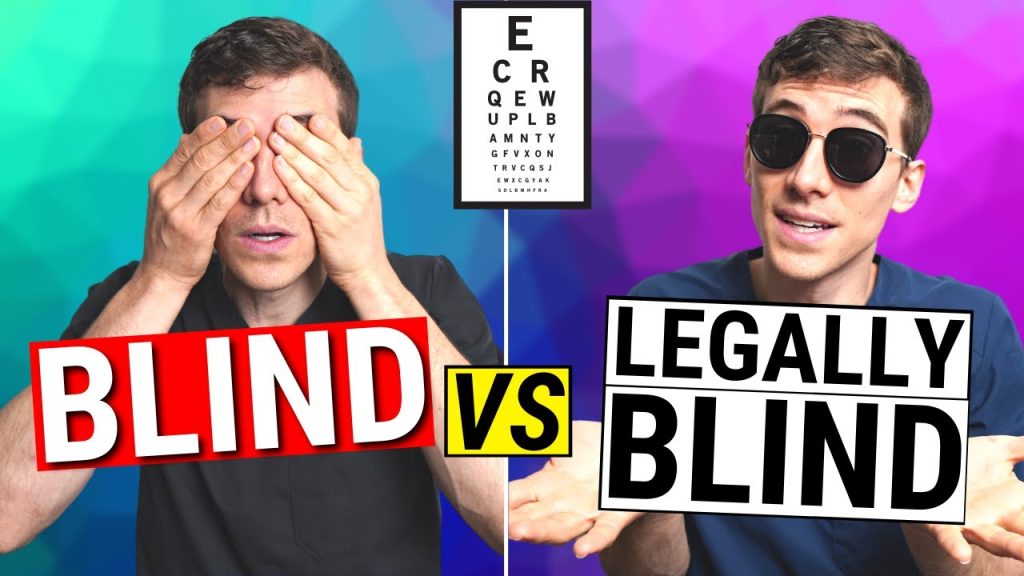 Image source HealthlineLegally blind is a term that not everyone understands. The description is that the person's vision is no more than 20/200 and has a restricted field of vision less than 20 degrees wide. This means you will need to be 20 feet away to view something that a person with normal vision can see at 200 feet.
Image source HealthlineLegally blind is a term that not everyone understands. The description is that the person's vision is no more than 20/200 and has a restricted field of vision less than 20 degrees wide. This means you will need to be 20 feet away to view something that a person with normal vision can see at 200 feet.Advertisement
25. Blindness In Infants
 Image source The ScientistA visual system begins to develop in and is fully formed at the age of 2. By 6 to 8 weeks of age, a baby should be able to fix their gaze on an object and then follow its movement. By 4 months of age, their eyes should be aligned properly and not turned outwards or inwards. A health visitor will be checking these important signs.
Image source The ScientistA visual system begins to develop in and is fully formed at the age of 2. By 6 to 8 weeks of age, a baby should be able to fix their gaze on an object and then follow its movement. By 4 months of age, their eyes should be aligned properly and not turned outwards or inwards. A health visitor will be checking these important signs.Advertisement
26. Pink Eyes In Babies
 Image source The Eye NewsWhilst some symptoms of pink eye are universal, such as having the whites of the eyes appear pink or red, other symptoms are more specific and can help identify pink eye in babies. They can be present in both eyes and should be treated swiftly to avoid permanent damage including blindness.
Image source The Eye NewsWhilst some symptoms of pink eye are universal, such as having the whites of the eyes appear pink or red, other symptoms are more specific and can help identify pink eye in babies. They can be present in both eyes and should be treated swiftly to avoid permanent damage including blindness.Advertisement
27. Blocked Tear Ducts
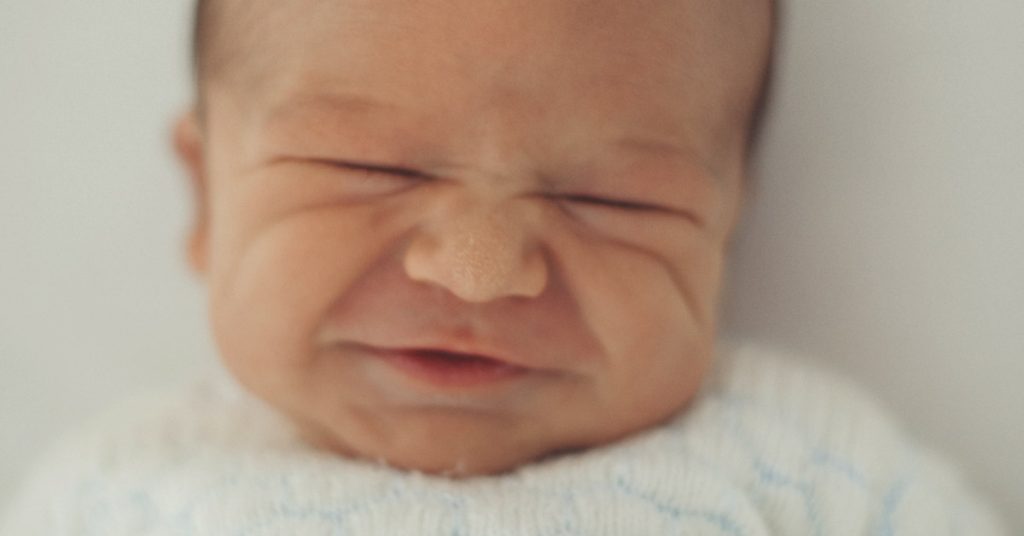 Image source HealthlineSometimes newborn babies experience a blocked tear duct caused by an inability of the baby’s tears to drain. It usually clears up as your baby matures.. It is quite common and not serious but should always be evaluated by a doctor to rule out anything more serious.
Image source HealthlineSometimes newborn babies experience a blocked tear duct caused by an inability of the baby’s tears to drain. It usually clears up as your baby matures.. It is quite common and not serious but should always be evaluated by a doctor to rule out anything more serious.Advertisement
28.Viral Infections In Young Children
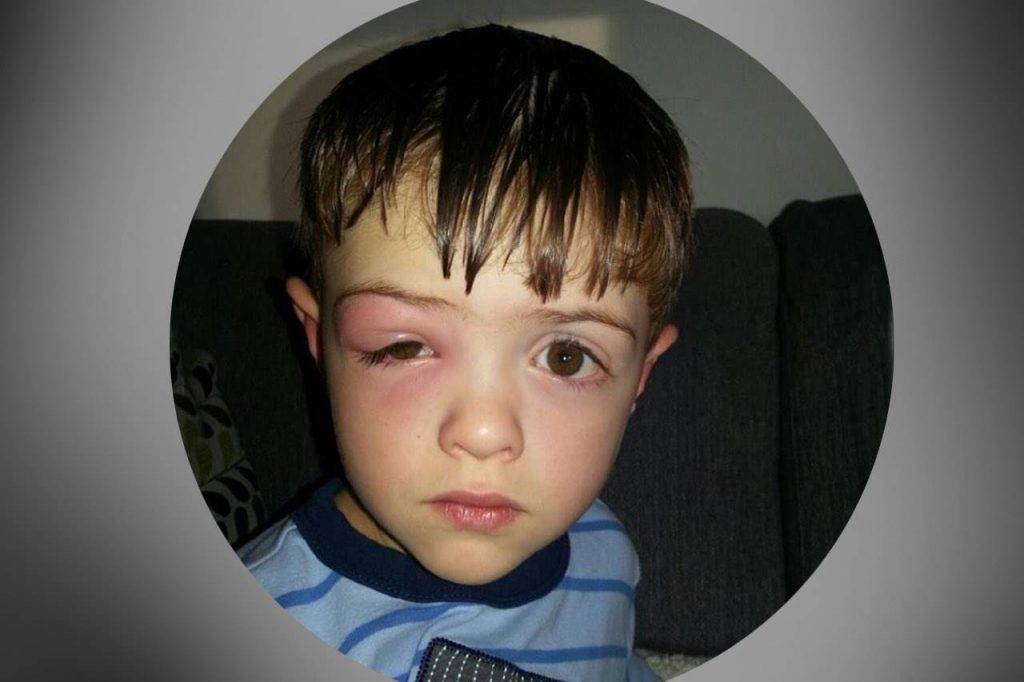 Image source Optometrists.comViral pink eye usually coincides with respiratory infections such as colds and flus. Symptoms may include inflammation of the eyelid and pink eyeball. The discharge from the eye is often thinner than the discharge from a bacterial infection and you may notice watery discharge, with the infection spreading from one eye to the other. Left untreated, this may be serious.
Image source Optometrists.comViral pink eye usually coincides with respiratory infections such as colds and flus. Symptoms may include inflammation of the eyelid and pink eyeball. The discharge from the eye is often thinner than the discharge from a bacterial infection and you may notice watery discharge, with the infection spreading from one eye to the other. Left untreated, this may be serious.Advertisement
29. Brain Tumours
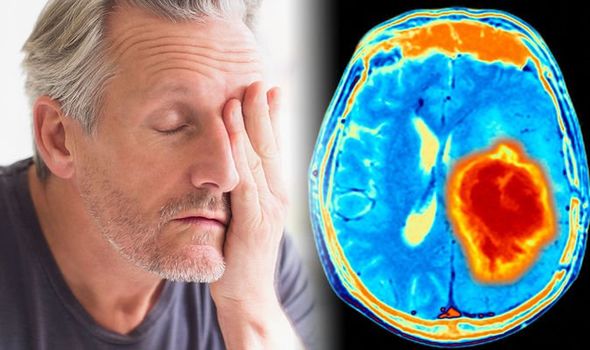 Image source Daily Express
Image source Daily ExpressBrain tumour symptoms can include changes to vision such as blurred or double vision, abnormal eye movements, restricted field of view and abnormal eye movements. It is important to remember that brain tumours are relatively rare but symptoms should be addressed.
Advertisement
30. Will I Go Blind If I Poke My Eyes?
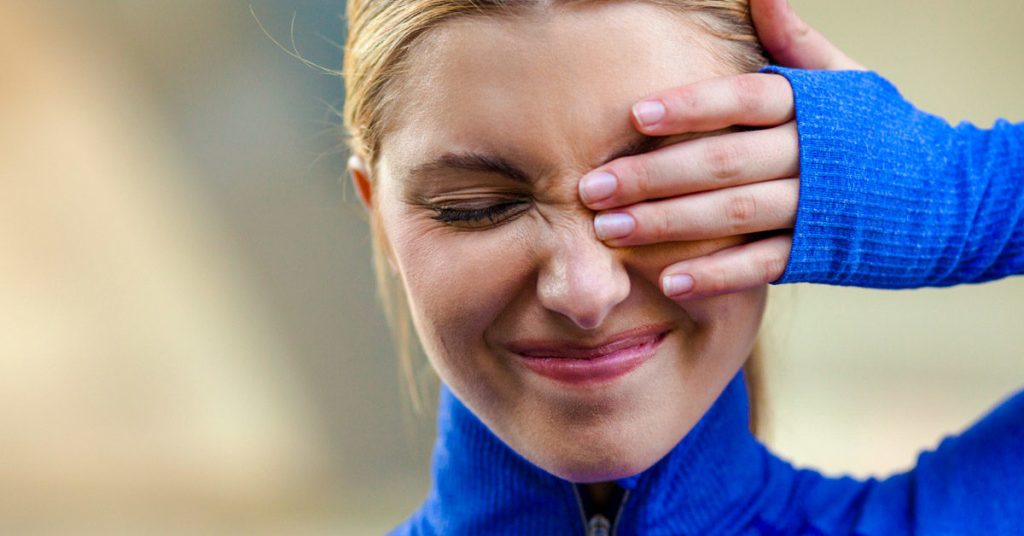 Image source HealthlineUltimately, there's not a lot to do to guarantee you will never go blind unless you harm yourself intentionally. Forget about old wives tales and frightening stories though and concentrate on the fact that life is for living as we never know what the future will hold.
Image source HealthlineUltimately, there's not a lot to do to guarantee you will never go blind unless you harm yourself intentionally. Forget about old wives tales and frightening stories though and concentrate on the fact that life is for living as we never know what the future will hold.Advertisement
31. Top tips to keep perfect vision: use eye protection for jobs at home
 image source: reddit.com
image source: reddit.com
There are more risks at home than you realize for your eyes, even something as simple as cooking! If you're cooking with oil, or cleaning with strong products like bleach, all it takes is an accidental splash in the eye to damage the surface of it. You should always wear protective eye gear for home improvement jobs (like goggles) and read bottle labels for eye safety tips.Advertisement
32. Make sure to prevent eyestrain
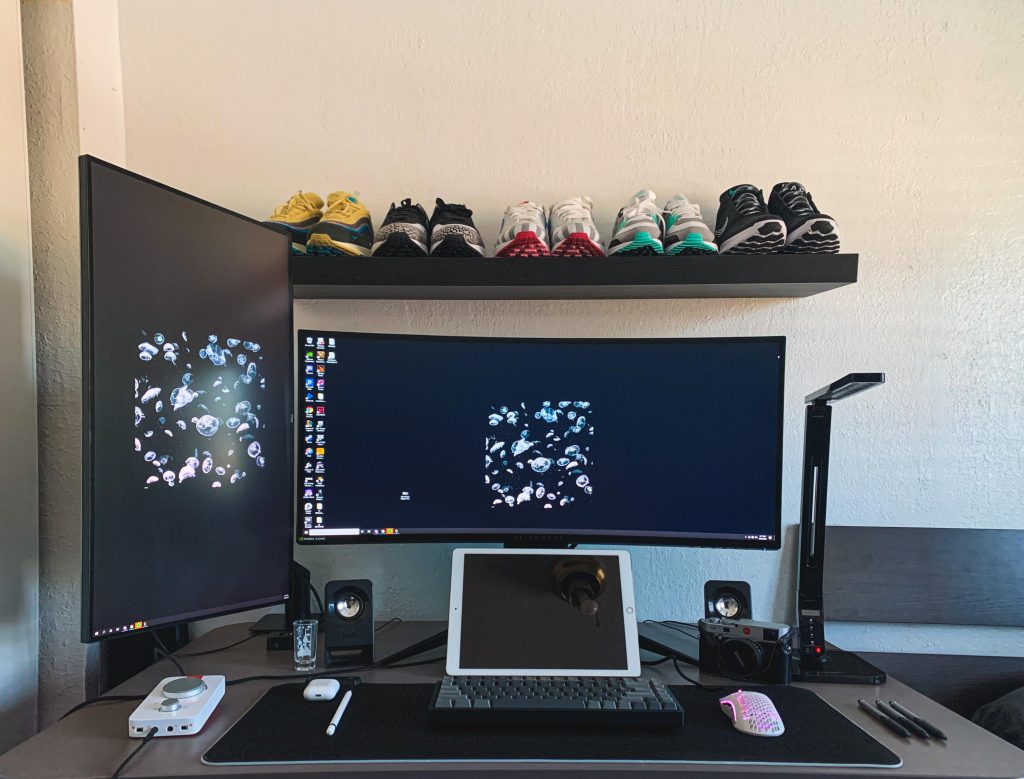 image source: reddit.com
image source: reddit.com
Eyestrain is something that most of us are at risk of these days because of the increase in screen usage, and especially if you have a job at a computer all day. It can be hard to realize just how much of a risk this poses on your eyes over time. Make sure to take regular breaks, position your screen at the right height and distance, and use eye drops if you have dry eyes.Advertisement
33. Be responsible at social events
 image source: reddit.com
image source: reddit.com
We know when the alcohol kicks in it's hard to try and be too careful, but the best you can do is make sure you're careful with things like those popping champagne corks that can easily go in the eye! Distance is key here for social things, including standing too close to fireworks, bright lights, or people throwing things for party games - judge in the moment how to protect your eyes!Advertisement
34. Wear eye protection for sports
image source: reddit.com
Sport is a great way to exercise, and you shouldn't have to give that up - but you should be responsible with eye safety when playing certain sports, like with a ball or racket. Even sports that are high contact can risk an elbow to the face or an eye injury. Make sure to wear the proper eye protection - if your sports facility only provides the racket and ball equipment, take your own eye protection!Advertisement
35. Take supplies for the great outdoors
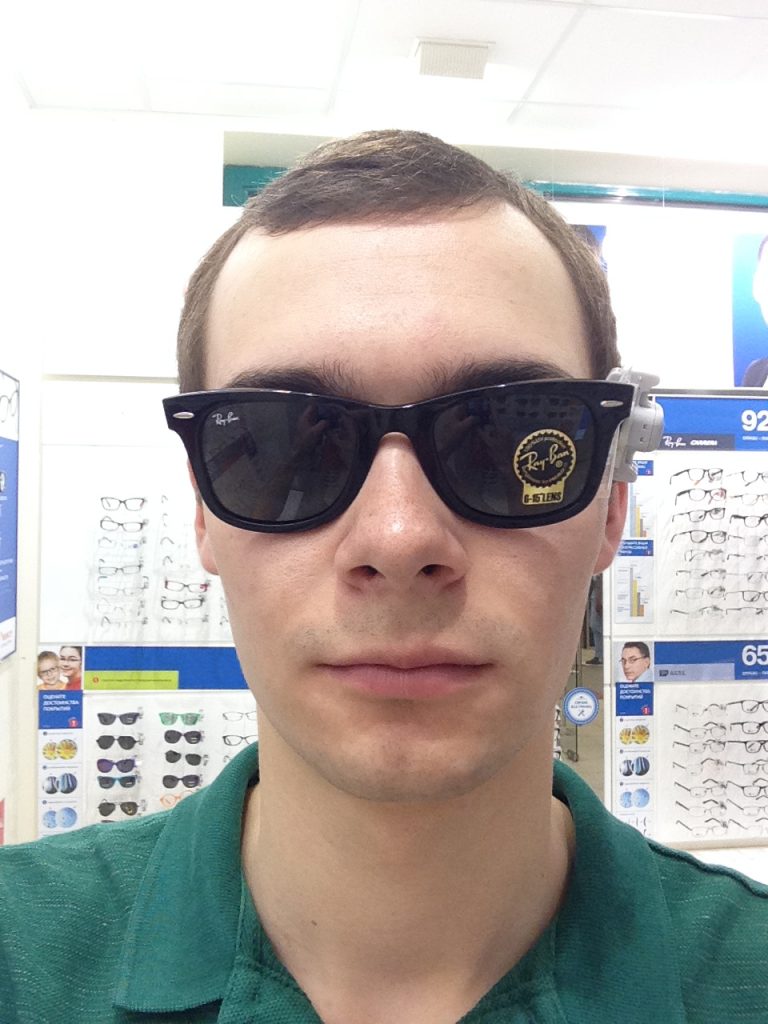 image source: reddit.com
image source: reddit.com
Wearing sunglass when out on a hike or out in nature is key for eye protection, both from sunlight and from walking into branches that can stab your eye! You'll also want to take allergy medication if you have risks of hay fever or anything that can irritate your eyes, as well as insect repellent in case you're also allergic to insect stings or having them compromise your vision.Advertisement
36. Take care of your contact lenses
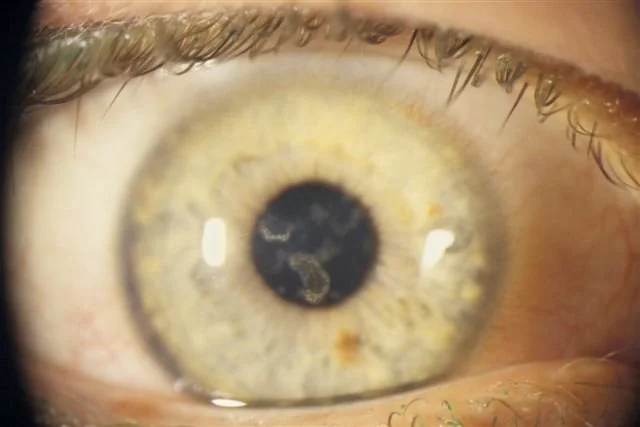 image source: reddit.com
image source: reddit.com
A lot of eye problems or vision issues - which can sometimes be serious and permanent - can come from improper care or wear of contact lenses. One of the worst culprits can be leaving your contact lenses in for longer than you should. You should always make sure to take them out and clean them in the proper solution, and also make sure you have enough supplies if you're traveling.Advertisement
37. Eye protection at work
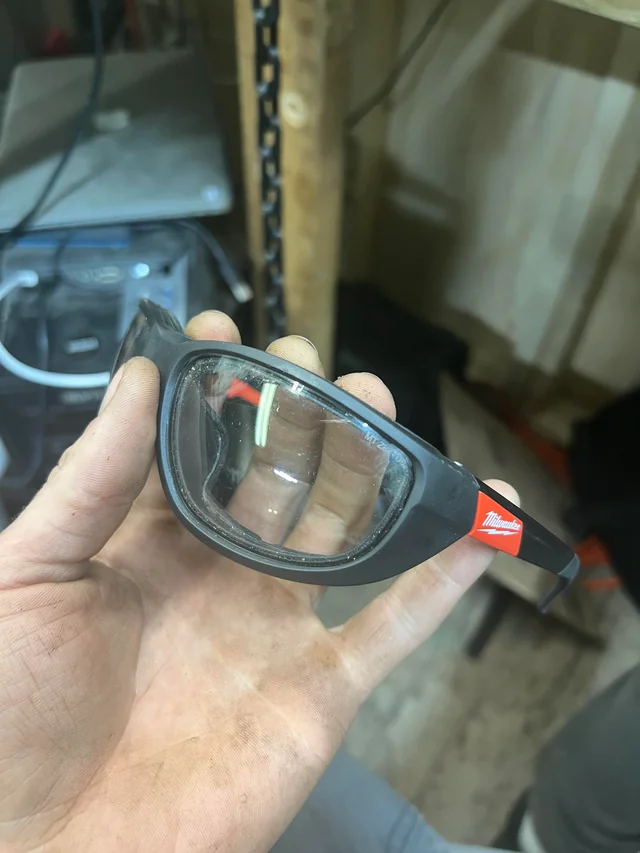 image source: reddit.com
image source: reddit.com
We'd all like to hope that workplaces provided the exact safety equipment, like goggles or eyewear, for certain jobs where it's needed, but you should also look out for yourself - make sure to speak up if you haven't been given the proper equipment, and if you're self-employed make sure you invest in the right eye protection equipment if you're working with construction or materials like metal.Advertisement
38. Be hygienic with makeup products
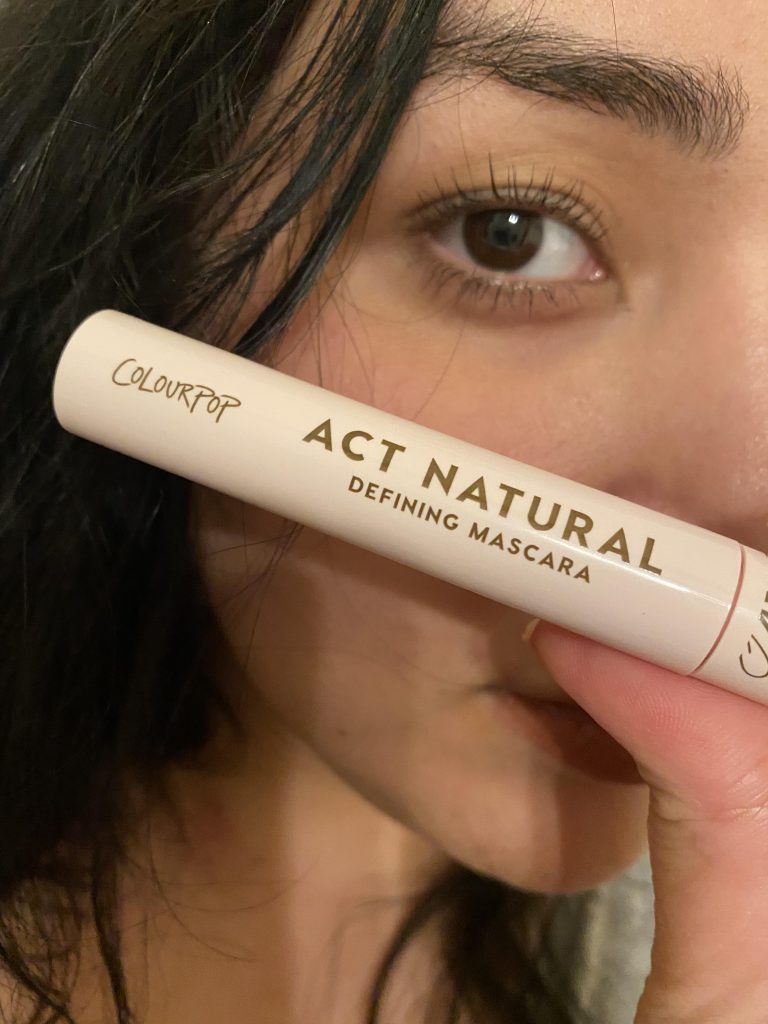 image source: reddit.com
image source: reddit.com
The number one rule for eye care and makeup is never to share your makeup with other people, especially mascara, eyeliner or makeup brushes. Be sure to throw away eye makeup after every three months or so, and follow the shelf-life for the product. You should also make sure to regularly wash makeup brushes. This can all help to stop the spread of bacteria and risk of eye infections.Advertisement
39. Be careful when playing with children
image source: reddit.com
When you're playing with children, you put so much focus on keeping them safe and watching for them hurting themselves that it's easy to forget to protect yourself, too! They can easily throw toys that hit you in the face or eye, or even accidentally hit you or make you fall over when you're playing in more energetic ways out in the garden - so be sure to take precautions!Advertisement
40. Align your nutrition with good eye health
 image source: reddit.com
image source: reddit.com
There are certain foods that will help good eye health specifically, so you'll want to get these included in your diet as much as possible! These include carrots, which are great for eye health, as well as dark leafy greens like spinach and kale being packed with vitamins that can help eye health. A healthy diet low in saturated fats is also the best way to go overall.Advertisement
41. Speak to your doctor about pregnancy changes
image source: reddit.com
Sometimes vision changes can actually happen if you get pregnant, or else you're at certain risks of other things that can change your eyes when you get pregnant. It's important to speak to your doctor if you already have conditions like diabetes because this can affect how your eyes respond during pregnancy. Some eye changes are normal, like dry eyes, but it's always worth checking about.Advertisement
42. Care for your child's eyes early
 image source: reddit.com
image source: reddit.com
How your parents help to care for your eyes when you're young will make a big difference for your vision later in life, so if you have children for yourself, make sure to help with their eyesight in the early days, too. This includes letting them get plenty of time outside with fresh air and natural light, as well as eating a healthy diet. Use eye protection for them when needed.Advertisement
43. Stay healthy if you're in college
image source: reddit.com
College students or young adult students can be most at risk of eye problems because of how much they have going on, and because of that lifestyle. Students can often avoid getting enough sleep, risk sleeping in contact lenses after a late night party or fail to limit screen time due to the amount of time they need to look at computer screens for college work or their phones.Advertisement
44. Always attend your eye doctor appointments
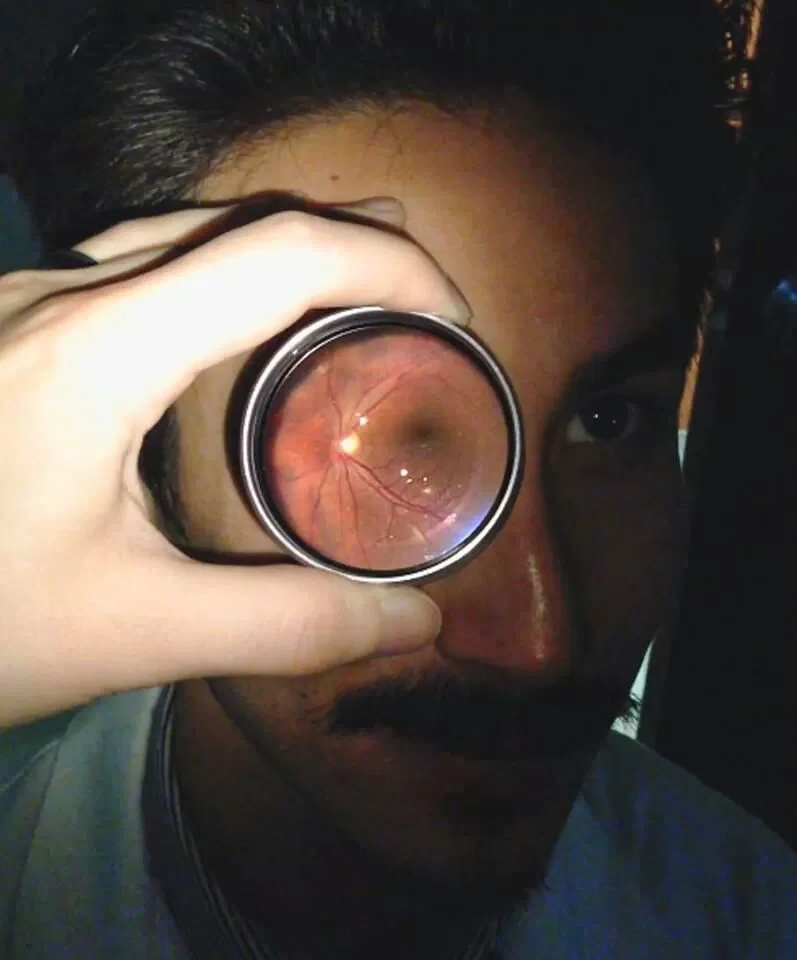 image source: reddit.com
image source: reddit.com
It can be really easy to skip an eye doctor appointment because it doesn't seem as urgent as something like the doctor's or the dentist, and especially if you don't wear glasses and your vision appears normal. But eye doctors thoroughly check everything you can't see yourself - excuse the pun - because they can take scans of the back of your eyes and appointments are crucial for ongoing vision health.Advertisement
45. And make sure to book eye screenings, too
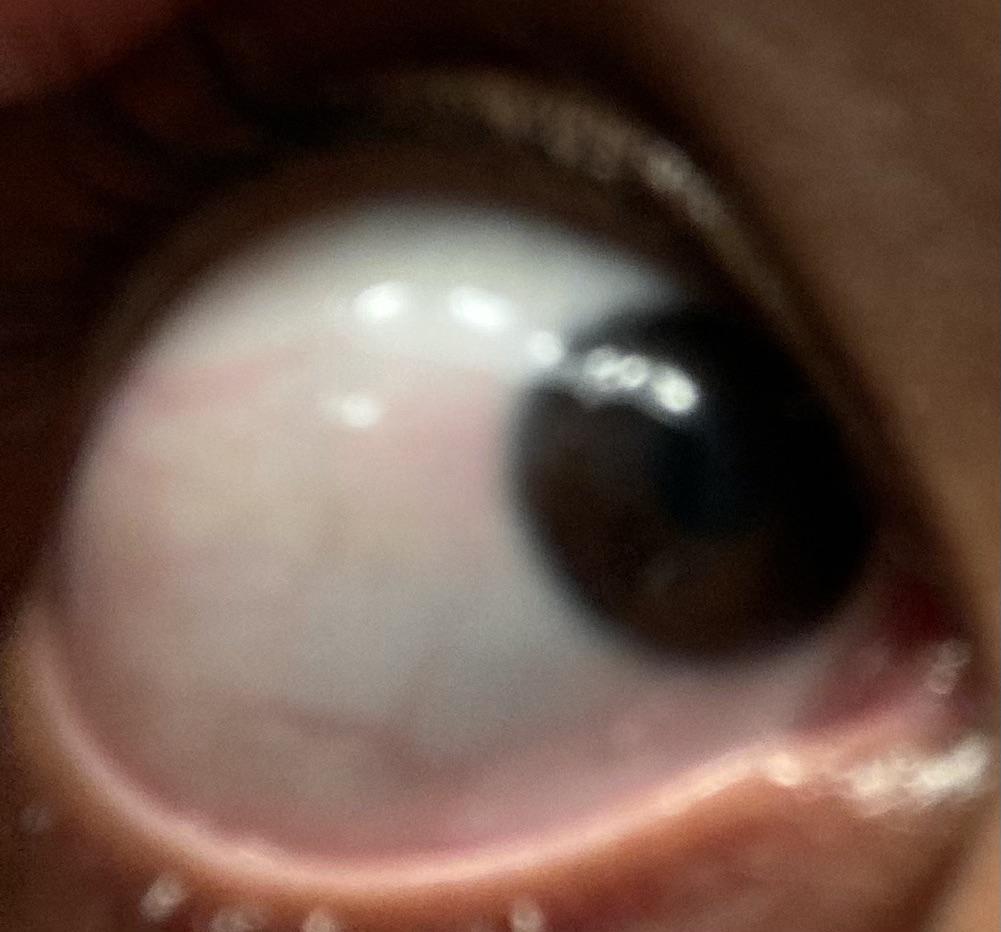 image source: reddit.com
image source: reddit.com
Eye screenings are often different from regular eye exams, and they become more important as you get older (usually above the age of 40) because they test your eyes for certain things. It's more of an in-depth test for things like your focus ability and vision. It's important to get eye screenings done at the same time as your regular eye appointments to cover all bases!Advertisement
46. Don't ignore vision changes as you get older
image source: reddit.com
The reason eye screenings are so important as you get older is because your vision can change in a huge way as you age. It can be normal to notice things like blurry vision when you reach a certain age and degeneration can be normal. But whenever you notice any changes in your vision, book an appointment because it could be normal aging or something else.Advertisement
47. Vision changes can be a sign of other issues
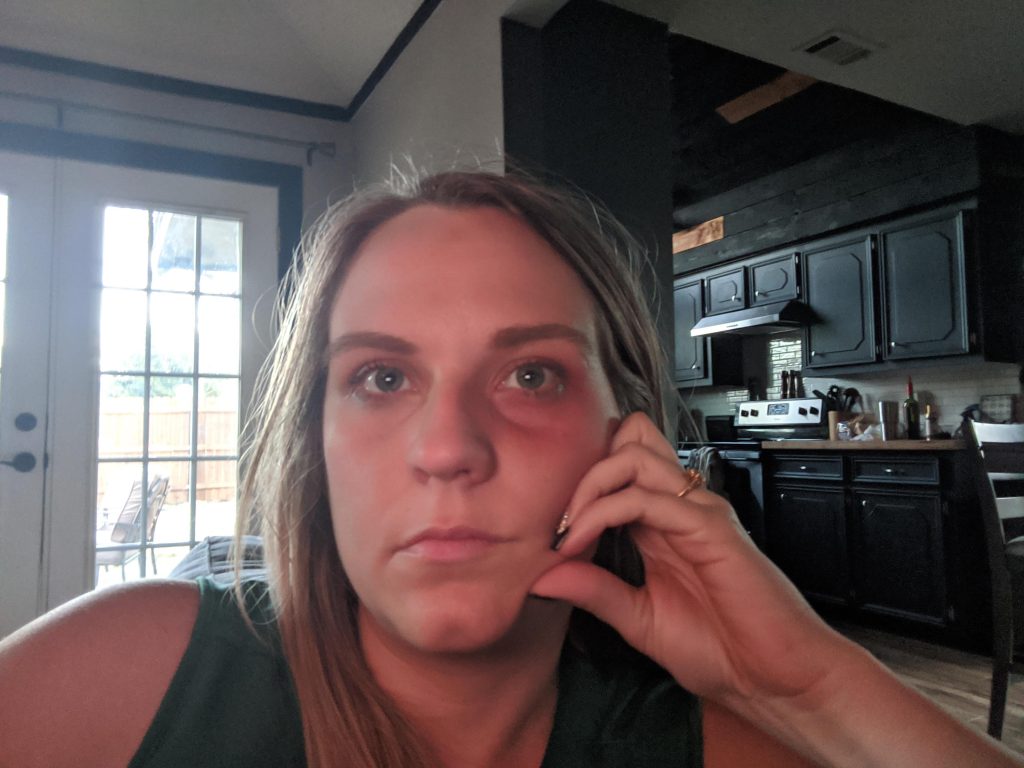 image source: reddit.com
image source: reddit.com
You may also be experiencing vision changes as a direct result of something else, and not because of vision problems. One of the most common things can be migraines, as these can make you suffer from blurred vision or flashes of light. You should then get treatment for migraines so that your vision won't suffer from the symptoms of serious headaches and things like this.Advertisement
48. Be safe with s*x
 image source: reddit.com
image source: reddit.com
A lot of people don't actually know that s*xually transmitted diseases and infections can actually affect your vision. In a lot of cases of the most common infections, they can actually spread to your eyes if left untreated. It's important to visit a doctor if you suspect an STD, but preventative measures are the best way to go to protect your overall health - including your eyes!Advertisement
49. Keep a healthy lifestyle
 image source: reddit.com
image source: reddit.com
Keeping an overall healthy lifestyle is going to benefit your eyes, too, because a healthy diet is always going to include vitamins and minerals that help for healthy vision. Keeping a healthy lifestyle also includes attending your regular medical screenings, which also check for any health conditions that can affect the eyes so that you can get treatment sooner rather than later.Advertisement
50. Hand hygiene
image source: reddit.com
Most of us are guilty of touching our face and rubbing our eyes so much throughout the day - and especially if you have itchy eyes or hay fever, you can be constantly rubbing or wiping your eyes. If you're not keeping up with good hand hygiene and washing your hands when you should you risk transferring bacteria to your face and to your eyes. The best thing can be to try and stop touching your eyes as much!Advertisement


